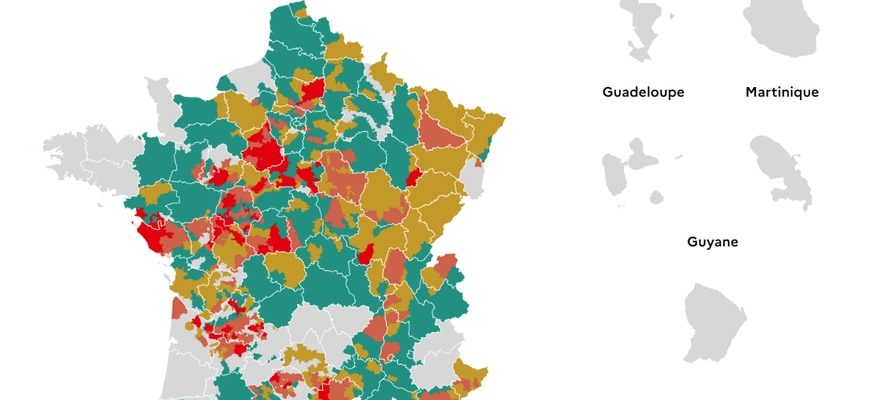Despite global warming and drought, the French still consume too much water. This is the conclusion of a new report by the Court of Auditors published on July 18. The latter calls for a “determined strategy for reducing withdrawals” as well as a “rational use of the resource”, the only solutions to solve the problem in the “long term”.
Until now, the government continued to believe in technical innovations, such as the desalination of seawater or the reuse of wastewater, one of the tracks of the “Water plan” presented by Emmanuel Macron at the end of March. But the Court found them too expensive and not effective enough. According to her, there is only one possible option: to reduce water consumption. To do this, it invites the authorities to strengthen the control of withdrawal authorizations, and to condition the public financing of certain agricultural infrastructures on commitments to reduce consumption.
Progressive pricing, a solution to the problem?
The Court also calls for an in-depth review of water policy. This must go through progressive pricing “wherever possible”. Already implemented on an experimental basis in certain municipalities (Dunkirk, Montpellier, Besançon, etc.), it consists of charging more and more expensive cubic meters to encourage sobriety. The only downside: it is limited to individuals.
An injustice according to the Court of Auditors, which points out that the fee on water withdrawals is “supported up to 75% by individuals, who represent only 16.4% of the withdrawals”.
“Excessive withdrawals”
According to the Court, there is urgency. The quantity of renewable water available in France fell by 14% between the period 1990-2001 and 2002-2018. “And nearly 11% of groundwater bodies are over-abstracted,” the report notes.
The drought situation in France (by VigiEau)
© / by VigiEau
However, the French have not reduced their consumption. Each of them uses an average of 148 liters of domestic water per day, according to figures provided by the National Observatory of Water and Sanitation Services in 2021. This is well above the thresholds set by the he World Health Organization (WHO): it estimates that only 50 liters of water a day are necessary for a decent life, and 100 liters for real comfort.
These conclusions from the Court of Auditors come as the northern hemisphere faces ever-increasing heat waves. Greece, Spain, Canada and the United States are particularly affected, as are China and Japan, which are currently experiencing temperature records. “These phenomena will continue to intensify,” warned John Nairn, expert with the United Nations World Meteorological Organization (WMO). In France, 7 departments are currently placed in heat wave orange vigilance. More than 70 departments already have water restriction measures in place on their territory.
